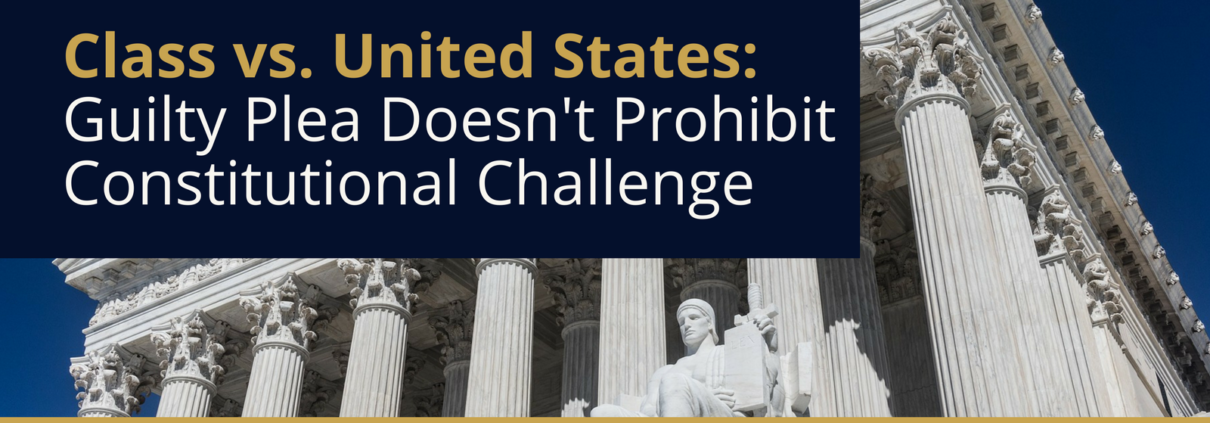The U.S. Supreme Court has just reversed the D.C. Court of Appeals in Class v. United States, a case that is likely to impact federal plea agreements and criminal appeals across the country.
In the case, Rodney Class of North Carolina, was charged with violating a federal law that prohibits firearms and ammunitions on Capitol grounds. Capitol police found Class to have guns in his locked Jeep. Though Class initially plead guilty, on appeal he argued that the gun law violated his Second Amendment rights and the right to due process under the Constitution.
The appeals court refused to hear Class’s case saying that Class had waived his right to appeal when he entered a guilty plea. The Supreme Court granted the petition to hear the case in February 2017.
In a 6-3 vote, the Court held a guilty plea, by itself, does not bar a federal criminal defendant from challenging the constitutionality of his statute of conviction on direct appeal. Writing for the majority Justice Breyer asserted, “Class’s valid guilty plea does not, by itself, bar direct appeal of his constitutional claims in these circumstances.” Justices Ginsburg, Gorsuch, Kagan, Roberts, and Sotomayor joined in the majority decision.
In short, the Court said that even if you plead guilty, you can still later challenge on appeal the constitutionality of the statute that you pled guilty to if you didn’t expressly waive this right in your plea agreement.
Justice Breyer noted in the decision that while entering a guilty plea can waive some rights, such as the right to jury trial or the right to confront accusers, it does not expressly prohibit the right to challenge the government’s power to criminalize the admitted conduct.
Offering the dissent, Justice Alito remarked, “I fear that today’s decision will bedevil the lower courts.” Justices Kennedy and Thomas joined Justice Alito in the dissent.
I doubt the consequences will be as dire as Justice Alito asserts. Instead, I predict that federal prosecutors will try and head off any ambiguity by rewriting their plea agreements going forward in response to the Class decision. Their aim will be to try and force defendants to expressly waive their appellate rights to challenge the constitutionality of the statutes.
Federal and white-collar practitioners would be wise to read future plea agreements carefully to see whether this new language has been inserted and whether your client wants to agree to such a waiver.
Criminal appeals are often very complex. If you or someone you care about has questions about filing a criminal appeal, you need to consult with an experienced appeals attorney. Contact Sam Winston’s office today for help.



